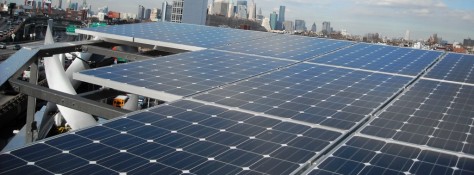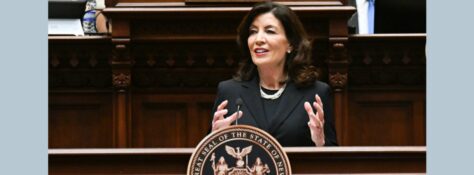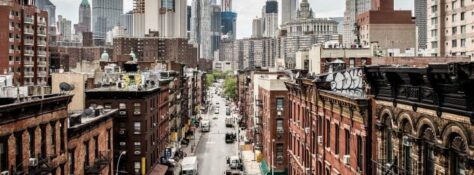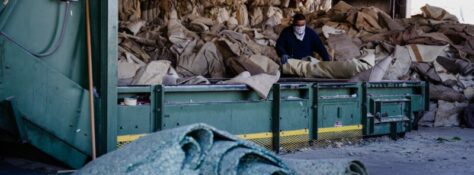Action and legislation to decarbonize buildings in New York State is a top priority for the New York League of Conservation Voters in 2023. Our reason is simple: Buildings are the leading source of greenhouse gas emissions and co-pollutants in New York State.
Learn MoreGovernor Kathy Hochul’s State of the State address last week laid out several key environmental priorities that would advance the
Learn MoreGovernor Kathy Hochul’s State of the State address today laid out several key environmental priorities that would advance the state toward meeting the goals mandated in the Climate Leadership and Community Protection Act.
Learn MoreNews
New York state has reached a critical milestone in its effort and planning to become carbon neutral by 2050. After three years of review, hearings and debate, the state has released its climate action Scoping Plan, a blueprint for eliminating fossil fuel reliance in the state.
Learn MoreGovernor Kathy Hochul recently vetoed A. 6652/S. 4162, known as the Class C Streams bill, which was designed to protect New York’s streams by putting them under the supervision of the state’s Department of Environmental Protection. Given the recent veto, NYLCV is calling for the bill to be included in the Governor’s Executive Budget.
Learn MoreThere’s a good reason the New York League of Conservation Voters recently honored Logical Buildings in Westchester County. They are doing cutting-edge work to help builders, landlords and other stakeholders decarbonize buildings.
Learn MoreNews
As New York State and New York City continue to be national examples for environmental legislation designed to reduce carbon pollution, the New York League of Conservation Voters is advocating strongly for implementation of four waste reduction measures at various stages. The League is urging Gov. Kathy Hochul to sign two bills already passed by the state legislature: the Digital Fair Repair Act and a bill that would require carpet producers to establish a recycling program.
Learn MoreNews
The long-delayed project to build a new tunnel under the Hudson River for train travel between New York and New Jersey is moving forward, with billions in funding recently announced from the federal government. A well-functioning railroad for New York City commuters and the greater Northeast Corridor is critical to getting fossil-fuel-burning automobiles off the road, which translates into cleaner air and improved public health.
Learn More



